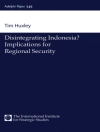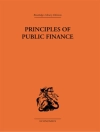How do we arrange our collective affairs? Why do we live together in the ways we do? How ought we to live together? All humans think about the world they live in, its history and future, and the ideals by which they want to live in relation to others. How we think today decisively influences the world of tomorrow. This encyclopedia attempts to bring greater clarity and understanding to political debate.
Drawing together a team of international scholars, the Encyclopedia of Political Theory examines the ideas of the major political theorists from before Plato to our own times; the main schools of political thought; the concepts and issues that have captured the imagination and attention of political theorists; and some of the main institutions and practices inspired by political thought. With more than 450 entries, these three volumes provide a quick, one-stop source to key topics in the field.
Key Features
- Examines the global landscape of all the key theories and the theorists behind them
- Includes specific lists of entries that deal with constitutional thought and democratic thought
- Refers to distinctive norms and features of various governments, legal systems, and societies
- Devotes large parts to the history of ideas about government, ethics, and society
- Provides a chronology of political theory to help readers see how a given theorist, school, or issue fits into the bigger historical picture
Key Themes
- Ancient Thought
- Applied Ethics
- Biographies
- Comparative Theory
- Constitutional Thought
- Critical Theory
- Democratic Thought
- Early Modern Thought
- International Theory
- Justice
- Liberal Theory
- Medieval Thought
- Modern Theory
- Power and Authority
- Religious Thought
- Self and Community
This work is designed to serve as a reference source for anyone interested in the roots of contemporary political theory. It will be a welcome addition to any academic or public library.
Table des matières
Common Law – Paul Carrese
A propos de l’auteur
Professor Mark Bevir is a member of the Department of Political Science at University of California, Berkeley. He was born in London and educated at the University of Exeter, U.K., where he got a BA (1st Class), and the University of Oxford, UK where he was awarded a DPhil. Before moving to Berkeley, he worked at the University of Madras, India, and University of Newcastle, UK. He has held visiting positions in Australia, Finland, France, U.K., and the U.S. Currently he is co-convener of the Interpretive Political Science specialist group of the Political Studies Association and President of the Society for the Philosophy of History.












